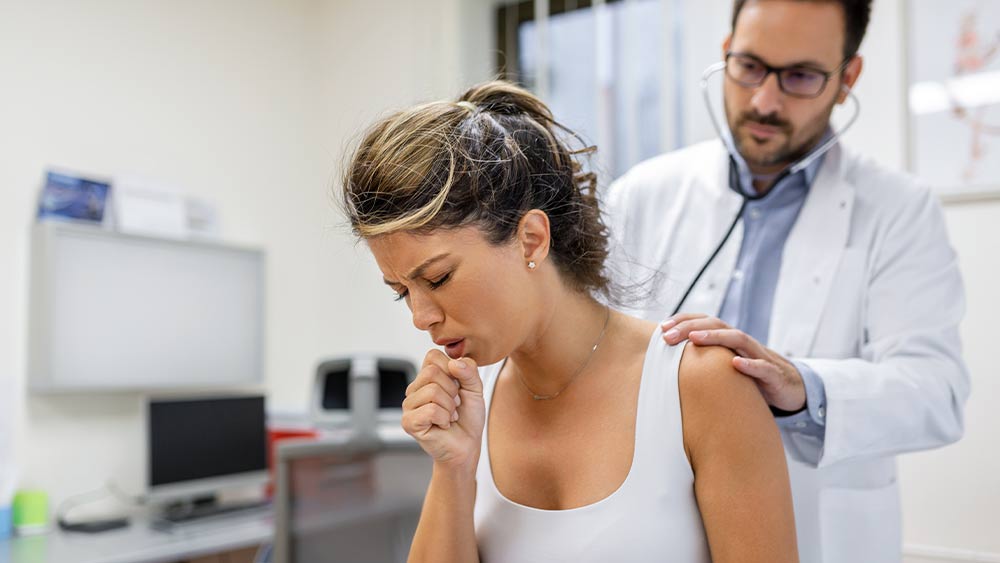Cash
Through a current account
Electronic card (Visa, Master, Dina, etc.)

Pulmonary examination in Belgrade. TOP PRICE✓ Pulmonology✓ Lung Disease Clinic✓ Treatment of lung diseases, COPD, asthma, allergies, bronchitis, pneumonia✓
Call us and get informed about current DISCOUNTS!
A pulmonary examination is a medical procedure used for the diagnosis and treatment of diseases of the respiratory system, including the lungs and airways. It allows the doctor to identify conditions such as asthma, chronic obstructive pulmonary disease (COPD), pneumonia, and other breathing disorders.
The examination consists of several stages: inspection, where the doctor observes the breathing pattern and chest movements; palpation, which checks for symmetry of chest movement and the presence of vibrations; percussion, which assesses sounds produced by tapping on the chest; and auscultation, which involves listening to lung sounds with a stethoscope.
Based on the findings, the doctor may recommend additional tests such as a chest X-ray or spirometry to establish an accurate diagnosis and determine the best treatment.
A pulmonary examination involves several stages and begins with taking a detailed medical history. During the interview, the pulmonologist asks about the patient’s symptoms, such as cough, shortness of breath, chest pain, frequent respiratory infections, as well as previous lung diseases, family history of lung conditions, and exposure to risk factors like smoking or pollution. The doctor may also inquire about any allergies or asthma, which can affect respiratory function.
After taking the history, a physical examination follows. The pulmonologist uses a stethoscope to listen to the patient’s breath sounds and assess the respiratory tract for noises such as wheezing, whistling, or crackling. These sounds can indicate asthma, infection, or other lung disorders. A breathing strength test, such as spirometry, may also be performed, which measures how much air the patient can inhale and exhale, as well as the speed of airflow.
Additionally, the doctor may order further diagnostic tests such as a chest X-ray, CT scan, lung function tests (spirometry, pulse oximetry), blood tests to detect inflammation or infections, and procedures like bronchoscopy or biopsy if a more detailed analysis of specific lung problems is necessary.
Dr. Rade Milic
Dr. Rade Milić is one of the most respected pulmonologists in Belgrade, recognized for his expert knowledge and dedication to patients. As the Head of the Pulmonology Clinic at the Military Medical Academy (VMA), he specializes in the treatment of chronic obstructive pulmonary disease (COPD), asthma, nonspecific inflammatory lung diseases, and pulmonary thromboembolism. His treatment approach combines the latest scientific knowledge with many years of clinical experience, making him a leader in the field of respiratory medicine.
Dr. Milić is the author and co-author of more than 50 scientific and professional papers and actively participates in both domestic and international conferences to further his expertise. His involvement in education and the scientific community demonstrates his commitment to advancing pulmonology practice. He is a member of the Serbian Medical Society, the Medical Chamber of Serbia, and the European Society for Medical Oncology (ESMO), further highlighting his integration into the global medical community.
In addition to his academic work, Dr. Milić practices privately at the Pulmo Sleep Center Eliksir and Bel Medic. His work at these institutions provides patients with access to top-tier diagnostic and therapeutic services. If you are looking for a specialist with extensive experience and a dedicated approach, Dr. Rade Milić is the right choice for your respiratory healthcare needs.
A pulmonary examination usually lasts between 30 and 60 minutes, depending on the complexity of symptoms and the specific needs of the patient. If additional tests are required, the entire diagnostic process may take longer. Some tests, such as X-rays or CT scans, can be performed quickly, while others, like laboratory analyses, may take several days to yield results.
In certain situations, the pulmonary examination may be extended to monitor the patient’s response to therapy or to carry out additional diagnostic procedures. For example, in patients with chronic conditions like COPD, the doctor may recommend long-term lung function assessment or lifestyle advice to improve the patient’s condition.
What are the symptoms that indicate the need for a pulmonary examination?
Shortness of breath, cough, chest pain, frequent lung or respiratory tract infections, chronic fatigue, wheezing while breathing, or blood in sputum.
How should I prepare for a pulmonary examination?
Before the examination, inform your doctor about any current or past lung diseases, allergies, smoking habits, exposure to industrial pollutants, and medications you are currently taking.
Does the pulmonary examination hurt?
The pulmonary examination is painless. Although several tests may be performed, such as spirometry or X-rays, none of these procedures cause pain.
How long is the recovery time after a pulmonary examination?
In most cases, no recovery time is needed. If invasive tests, such as bronchoscopy, are performed during the examination, the doctor will provide you with recovery instructions.
When should I visit a pulmonologist again?
If symptoms reoccur or worsen, or if the pulmonologist deems it necessary to monitor your condition, regular check-ups may be required to assess the effectiveness of treatment or disease progression.
Specialist pulmonologist/pneumophthisiologist examination
6.000 rsd
8.000 rsd
Cash
Through a current account
Electronic card (Visa, Master, Dina, etc.)
Why choose us?
Pulmo Sleep Center Elixir is a real and leading private practice for diagnosing and treating sleep apnea in Serbia.

For free consultations, please call us or send an SMS, Viber or WhatsApp message every working day from 8 am to 5 pm.